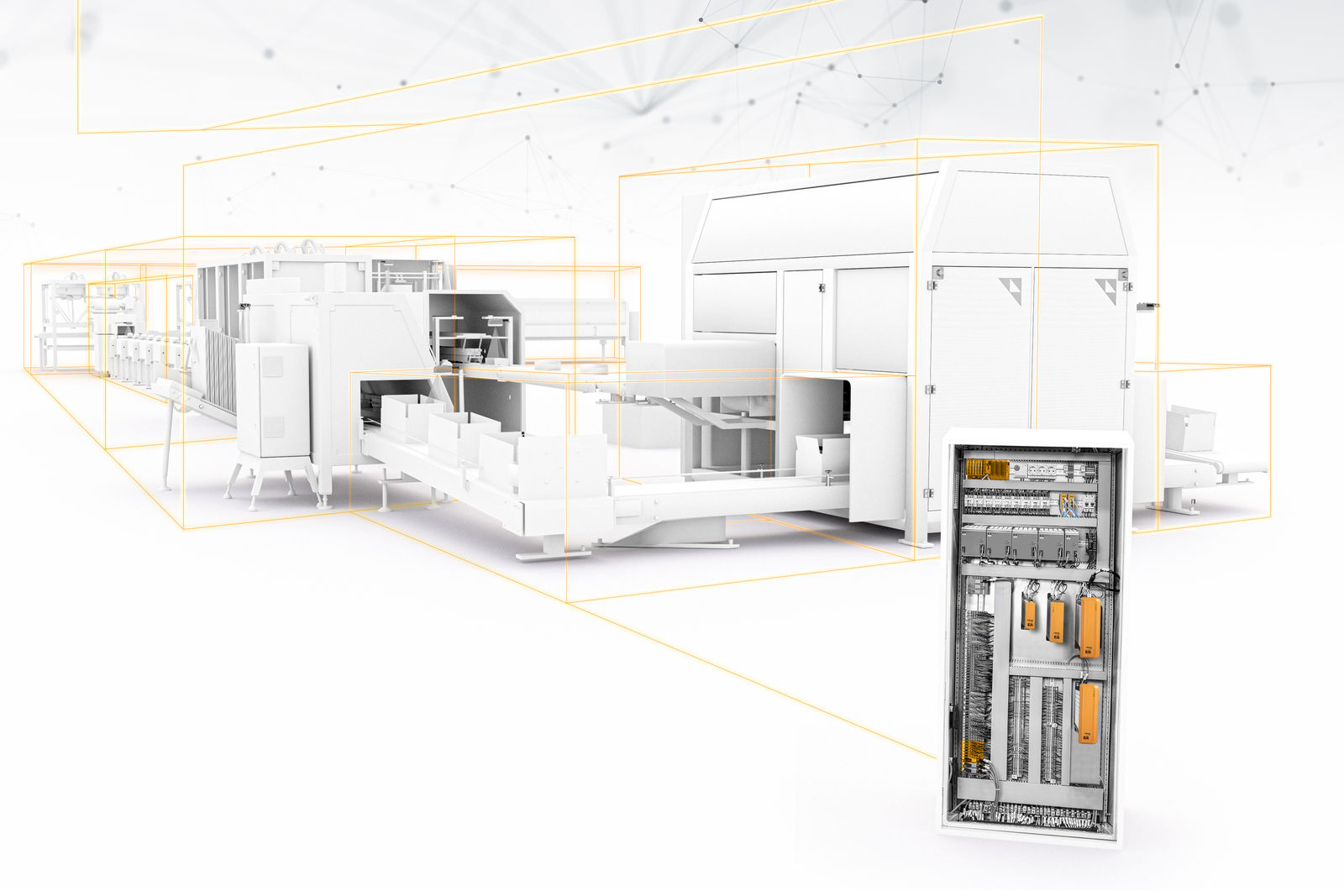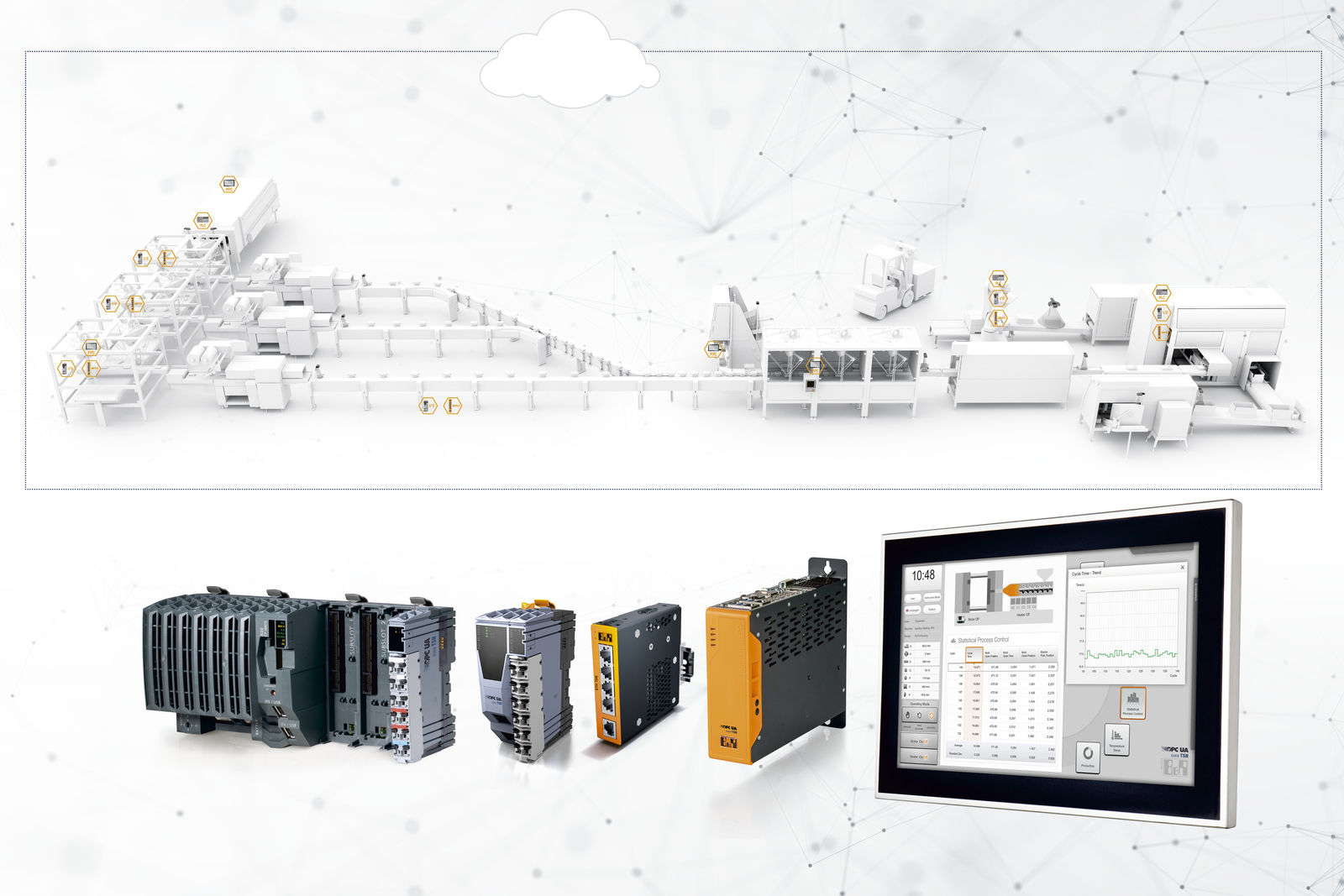To implement their increasingly complex production processes, builders and operators of cutting-edge manufacturing systems will rely on a new generation of automation solutions.

Industrial manufacturing is evolving from pure mass production towards levels of individualization that can no longer be handled by traditional lines designed to churn out huge quantities of a single product. To deal with shrinking batch sizes economically, they need smaller, more modular production units they can easily adapt and reconfigure – at any time and with minimal effort.
Even within these modular production units, the increasingly complex tasks being performed require a greater number and variety of high-tech components. Despite being built by different manufacturers, these components must talk to each other to get the data they need.
The critical link for a quantum leap
The pivotal stepping stone on the path to adaptive manufacturing will be a shift to a vendor-agnostic communication. "To make the leap to innovations like mass customization and batch size one," says B&R's IIoT Network Solutions Product Manager Konstantin Klein, "you need a uniform, real-time capable network that offers full interoperability and unifies IT standards with those of industrial manufacturing."
Single interface
For seamless connectivity, you need open communication with real-time capability. "The days when machine builders were forced to commit to a proprietary protocol are over," says Klein. The new generation will replace the disparate multitude of proprietary systems with a single solution for seamless connectivity. An interface that exchanges standardized data between all the nodes in the network. With only a single interface to work with, the entire engineering process is simplified dramatically. Raw data is enriched with standardized semantic descriptions that allow automatic interpretation of systems, devices and variables.
Leading manufacturers of automation and IT technology are making the move to vendor-agnostic communication with OPC UA over TSN. Until now, machine builders have gone to great effort and expense defining a multitude of interfaces and incorporating all their system information. OPC UA over TSN dispenses with all of that. Unlike other protocols that transmit only raw data, this solution enriches that data with semantics that can be easily understood by any node in the network. This eliminates all types of potential sources of error and makes it easier to implement flexible, adaptable machine concepts.

Plug and produce
With OPC UA over TSN, each device has its own information model containing all the relevant data for each device. That means you can quickly connect any drive to any machine, for example, regardless of what manufacturer it comes from. Maintenance and upgrades are simplified substantially.
High speed, sub-microsecond precision
A unified interface and protocol is only half of the equation, however. Cycle time and bandwidth play an equally important role. Time-critical applications, such as synchronizing a robot with an intelligent track system, require cycle times down to the microsecond range. OPC UA over TSN delivers 18 times more performance than conventional solutions. "OPC UA over TSN offers enough performance to solve all today's and tomorrow's applications," emphasizes Klein.
To enable this performance leap, the Ethernet standard on which the communication solution is based has been extended to include Time Sensitive Networking (TSN). "The TSN extension guarantees deterministic transmission in large convergent networks that bridge the divide between OT and IT systems," says Klein. Whether fast and centralized or intelligent and distributed, drive solutions can be adapted to the needs of the application more easily with OPC UA over TSN than with any other solution. The result is a boost in both productivity and product quality.
Feld level to the cloud
Based on a Gigabit Ethernet physical layer, OPC UA over TSN enabled products offer significantly higher bandwidths. Live operating data can be collected and shared with higher-level systems. "It's a seamless link from the field level to the cloud," says Klein. Advanced IIoT solutions like condition monitoring and predictive maintenance can leverage live feedback to extend component life and boost system availability.
Cybersecurity in multi-vendor systems
When you connect a machine network to the cloud, one of the primary concerns becomes cybersecurity. OPC UA over TSN offers the possibility to ensure security across networks made up of equipment from different manufacturers. Digital certificates based on the X.509 standard can be used in the OPC UA over TSN system to ensure secure, reliable exchange of data. "The security features of OPC UA over TSN offer built-in protection," says Klein.
By fully integrating OPC UA over TSN into its hardware and software, B&R offers manufacturing OEMs vendor-agnostic interoperability that makes them more agile than ever. Producers will finally be able to create the kinds of modular solutions they need to achieve batch-size-one productivity. "What seemed like a pipe dream only a few years ago is now a reality," declares Klein: "A single network cable for seamlessly connected manufacturing."
Author: Carola Schwankner, Corporate Communications Editor, B&R
Complete portfolio
B&R offers an extensive portfolio of products that support OPC UA over TSN communication. It includes X20 PLCs, an OPC UA over TSN bus controller and a TSN machine switch as well as industrial and panel PCs.